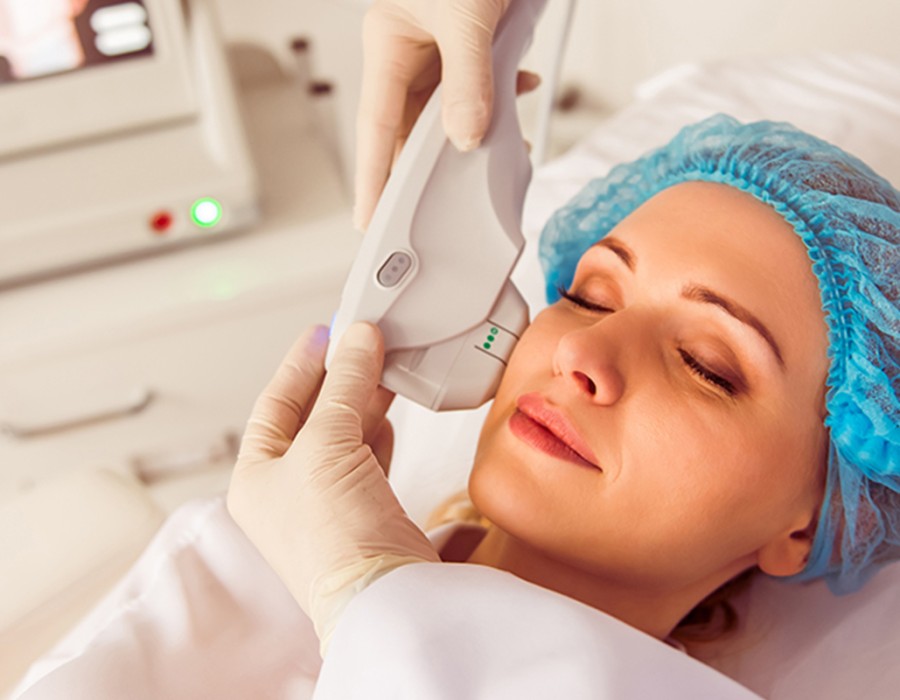HIFU Treatment in Dubaihas revolutionized the landscape of non-invasive cosmetic treatments, providing individuals with a promising option for skin tightening and lifting. However, not everyone is an ideal candidate for HIFU. This article explores the characteristics of suitable candidates, the expected outcomes, and the factors influencing the effectiveness of the treatment.
Understanding HIFU Treatment
1. What is HIFU?
HIFU is a non-surgical aesthetic treatment that employs focused ultrasound energy to penetrate the skin and stimulate collagen production. It targets various skin layers, leading to a tightening and lifting effect without invasive procedures.
2. The Mechanism of Action
HIFU works by delivering concentrated ultrasound energy to the skin, causing controlled thermal damage at specific depths. This process stimulates the body’s natural healing response, leading to increased collagen production over time. As collagen levels rise, the skin gradually becomes firmer and more youthful in appearance.
Ideal Candidates for HIFU Treatment
1. Age Range
HIFU is typically recommended for individuals aged 30 and above who exhibit early signs of aging. While younger individuals may benefit from preventive treatments, the most noticeable results are often seen in those with mild to moderate skin laxity.
2. Skin Laxity
The primary indication for HIFU treatment is skin laxity. Candidates should have:
- Mild to Moderate Sagging: HIFU is effective for individuals with skin that shows signs of sagging, particularly in areas such as the jawline, neck, and brow.
- Good Skin Elasticity: Candidates with reasonably good skin elasticity can achieve optimal results, as HIFU works best when there is some degree of natural skin tension.
3. Overall Health
A thorough health assessment is essential before undergoing HIFU treatment. Ideal candidates should be:
- Generally Healthy: Individuals without significant health concerns or medical conditions that may interfere with healing.
- Non-Smokers: Smoking can negatively affect skin health and healing, so candidates are encouraged to refrain from smoking before and after treatment.
Conditions That May Affect Candidacy
1. Skin Conditions
Certain skin conditions can impact the suitability of HIFU treatment:
- Active Infections or Inflammation: Candidates with active skin infections, inflammatory conditions, or open wounds in the treatment area should avoid HIFU until the condition resolves.
- Severe Acne or Eczema: Individuals with severe acne or eczema may not be ideal candidates, as these conditions can complicate the healing process.
2. Medical History
A thorough review of medical history is crucial to determine candidacy. Individuals should disclose any previous cosmetic procedures, medications, or underlying medical conditions, including:
- Autoimmune Diseases: Conditions that may affect the body’s healing response could influence candidacy.
- Skin Disorders: A history of keloids or other abnormal skin healing may require caution when considering HIFU.
Setting Realistic Expectations
1. Expected Outcomes
Understanding what to expect from HIFU treatment is essential for candidates. The expected outcomes include:
- Tightening and Lifting: HIFU can provide noticeable lifting and tightening effects, particularly in the neck, jawline, and brow area.
- Gradual Improvement: Results are typically seen gradually over several months as collagen production increases, with optimal results peaking around six months after treatment.
2. Limitations of HIFU
While HIFU is an effective treatment option, it is important for candidates to recognize its limitations:
- Not a Replacement for Surgery: HIFU is not a substitute for surgical facelifts, particularly for individuals with significant sagging or excess skin.
- Variability in Results: Individual results may vary based on factors such as age, skin condition, and adherence to post-treatment care.
Preparing for HIFU Treatment
1. Consultation
A thorough consultation with a qualified practitioner is essential for assessing candidacy and discussing individual goals. During this appointment, candidates can expect to:
- Discuss Concerns: Address specific concerns regarding skin laxity and desired outcomes.
- Receive Guidance: Learn about the treatment process, what to expect, and any necessary preparations.
2. Pre-Treatment Instructions
Candidates may receive pre-treatment instructions to ensure optimal results, which may include:
- Avoiding Blood Thinners: Refraining from blood-thinning medications or supplements prior to treatment to minimize the risk of bruising.
- Skin Preparation: Arriving at the appointment with clean skin free from makeup, lotions, or creams.
Post-Treatment Care and Maintenance
1. Aftercare Instructions
Post-treatment care is crucial for achieving the best results from HIFU. Patients are typically advised to:
- Stay Hydrated: Drinking plenty of water to support skin recovery.
- Avoid Excessive Sun Exposure: Protecting the treated areas from direct sunlight to prevent irritation.
2. Maintenance Treatments
To maintain the results achieved with HIFU, individuals may consider follow-up treatments every 12 to 18 months, depending on their skin’s response and aging process.
Conclusion: Embracing HIFU as an Anti-Aging Solution
HIFU treatment offers a promising solution for individuals seeking to improve skin laxity and achieve a more youthful appearance without surgery. By understanding the ideal candidates and setting realistic expectations, individuals can make informed decisions about their aesthetic goals.
As with any cosmetic procedure, thorough consultations and individualized assessments are essential for achieving the best outcomes. With its non-invasive nature and ability to stimulate collagen production, HIFU remains a compelling option for those looking to embrace the benefits of advanced aesthetic technology.





Comments